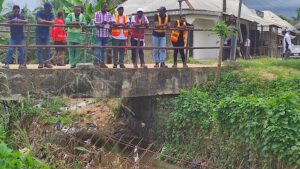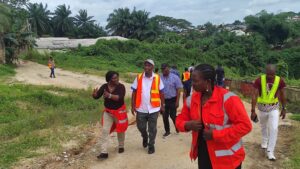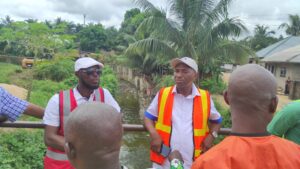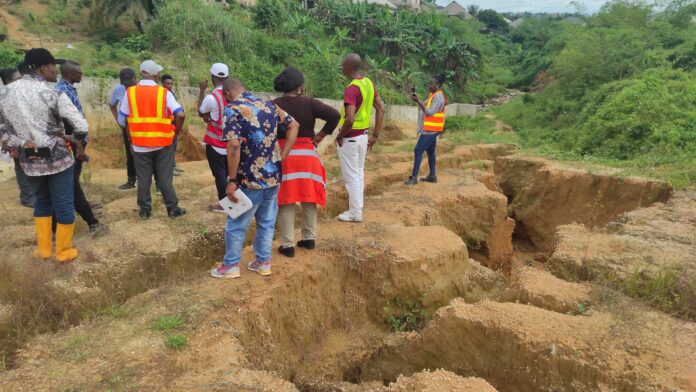Calabar – The Nigeria Erosion and Watershed Management Project (NEWMAP) is making significant strides in addressing the long-standing erosion challenges in Calabar, Cross River state. Don Ettah, the environmental safeguard officer of Cross River State NEWMAP, on Tuesday granted an interview to NEGROIDHAVEN after a tripartite on-the-site assessment of 6 erosion sites to shed light on the ongoing efforts to mitigate erosion issues in the region despite the frustrating efforts of residents.
Speaking about the environmental issues tied to these yet-to-be completed projects, Ettah explained the critical role of human activities in causing erosion. He highlighted that human activities, such as deforestation and construction, have removed the protective vegetation, making the area more susceptible to erosion. Furthermore, the region’s tropical climate and high rainfall contribute to the severity of erosion.


“Much of the environmental problems we are having today is as a result of human activities. Human activities are the major cause of erosion because naturally there was vegetation in all the Calabar locations, and when man’s activity settles, the need to build houses, aesthetic values, recreational centers, as a result of that the vegetation was destroyed. We are in the tropics with high torrential rains that are devastating, and Calabar specifically is sandwich by two rivers – the Calabar River and the Qua River. The soil we have here is basically coastal sand that is very loose and fragile. It is easily eroded. That’s why we are having so much of these gully erosions in Calabar. 
“The much of what we are fighting with since we started the NEWMAP project… The same people that were crying for help are the same people that are coming back to create problem again. As we have started recovering the sites, the community itself will go and sell the land to somebody who now came to secure the land and built that fence thereby obstructing the course of water. You know when you block water it will always find its course. As we go back to site a solution will be found that will abate that problem.”
Ettah stressed the importance of community involvement in addressing these issues. NEWMAP engages in a three-phase approach to community engagement, involving pre-engagement, during the project, and post-construction phases. The goal is to sensitize the communities about their role in protecting and maintaining the projects. Additionally, NEWMAP provides training and grants to individuals involved in harmful activities, such as sand mining, to help them transition to alternative livelihoods and prevent further environmental degradation.
On his part, Prof. Emmanuel Eyo, the Cross River Project Coordinator, NEWMAP, who said that “We decided to visit those sites to ensure that we bring it to the notice of the national body and the state government that there’s need for us to complete those sites and then close them before we go to new site” added “As NEWMAP continues to tackle erosion challenges in Calabar, the focus on community engagement, alternative livelihoods, and the human aspect of these problems is expected to play a crucial role in mitigating further damage and securing a more sustainable future for the region”.










